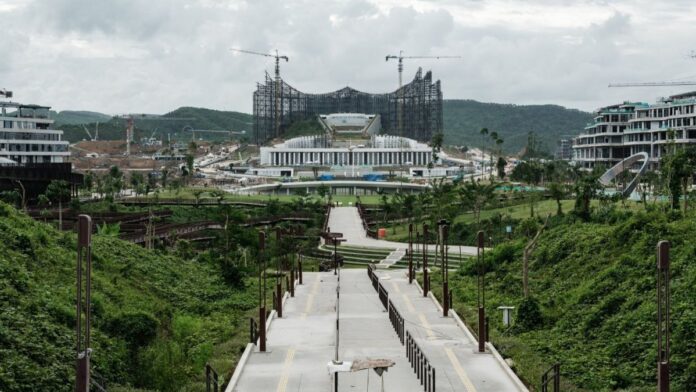President Prabowo Encourages IKN to Boost Potential for Growth and Development Inclusiveness
By: Marshanda Emilia *)
President Prabowo emphasized that the development of the Indonesian Capital City (IKN) in East Kalimantan is an important effort to encourage economic growth and increase the inclusiveness of national development. The relocation of the capital city from Jakarta is expected to reduce the disparity in development between the western and eastern regions of Indonesia, as well as open up opportunities for the creation of new growth centers that are more evenly distributed throughout the country. This step also reduces the burden that has been borne by Jakarta as the center of government, economy, and culture, which often faces various problems such as traffic jams, air pollution, and population density.
The relocation of the capital city is not only a physical change, but also a vision to form a new civilization. President Prabowo has repeatedly emphasized that the IKN will not only be a modern and sophisticated center of government, but will also be designed as a sustainable city that provides equal opportunities for all Indonesian people. The IKN will be an example of a future city based on the principles of inclusivity, sustainability, and technological progress, as well as a symbol of Indonesia’s transformation into a more advanced nation.
The relocation of the capital city to the IKN is also expected to encourage economic equality, especially in eastern Indonesia. With its strategic location, the IKN is projected to be a magnet for new investment and job creation, which will ultimately improve the welfare of the surrounding community. The development of modern and sustainable infrastructure, including highways, airports, ports, and telecommunications networks, will be the foundation for creating an inclusive and dynamic economic ecosystem in the IKN.
Economic observer Hendra Kholid believes that the Indonesian Capital City (IKN) can become a regional financial center, rivaling Singapore and China. This is related to the strategic cooperation between the IKN Authority and the leading global financial center in the Middle East, Africa, and South Asia (MEASA) region, the Dubai International Financial Center (DIFC). This MoU outlines a framework for collaboration. This cooperation aims to advance the common interest of building the Nusantara Financial Center in the archipelago.
Acting Head of IKN Authority Basuki Hadimuljono welcomed the MoU with DIFC. This MoU marks an important milestone for Indonesia in making the IKN a leading international financial center. Investment interest in the IKN continues to show positive developments. The total investment in the development of the IKN reached IDR 47.5 trillion.
Community involvement in the development of the IKN is one of President Prabowo’s priorities. The government continues to strive to ensure that local communities, including indigenous communities and vulnerable groups, are involved in every stage of development, from planning to implementation. This is important to ensure that development is in accordance with local needs and aspirations, and to encourage active community participation in creating an inclusive and sustainable city. This community involvement is also in line with the theory of regional autonomy which gives authority to local governments to regulate and manage their regions according to local conditions.
The theory of regional autonomy, which includes decentralization of power and equal distribution of resources, is an important foundation in the development of the IKN. By giving more authority to local governments, the IKN can develop local potential more optimally. Decentralization is expected to increase the efficiency and responsibility of local governments in meeting community needs, as well as strengthening citizen participation in decision-making concerning the development of their region. In this context, the development of the IKN is not only a central government project, but also a shared responsibility between the central government, regions, and the community.
In the dynamics of politics and development that continue to develop, the policy of moving the capital city of Indonesia from Jakarta to IKN has also attracted the attention of political observers from neighboring countries. an international political observer who is also a senior lecturer at Universiti Malaysia Kelantan (UMK), Dr. Marwan bin Ismail stated that the relocation of the capital city is not just a change in administrative location, but rather a strategic innovation that has the potential to change the economic and political landscape not only for Indonesia, but also for the ASEAN region.
Dr. Marwan recalled Malaysia’s experience when Prime Minister Mahathir Mohamad moved the administrative capital from Kuala Lumpur to Putrajaya. Although Putrajaya was initially heavily criticized and labeled a “ghost town,” the move eventually helped Malaysia develop into a more economically developed country.
Dr. Marwan also assessed that President Prabowo’s vision for the development of the archipelago is very strong, and is an example for other world leaders about the importance of leadership continuity in continuing the planned development program.
Hopes for the success of the capital city relocation and the creation of a more prosperous society are growing, making the IKN a symbol of progress and national unity towards a brighter future.
)* Development and Infrastructure Consultant
